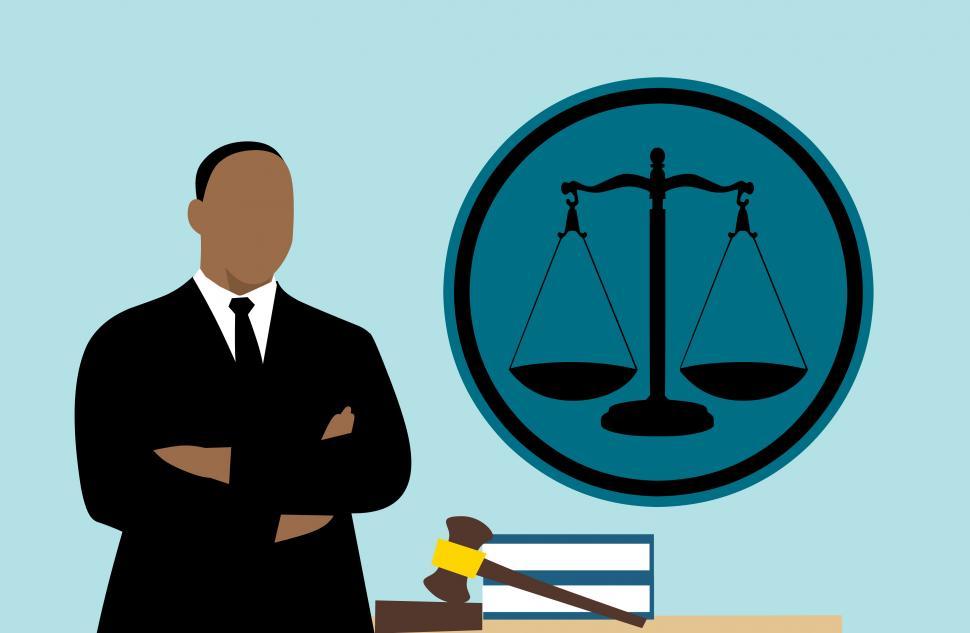Leading Texas Appeals Lawyers at Brownstone Law: Professional Representation for Your Situation
Leading Texas Appeals Lawyers at Brownstone Law: Professional Representation for Your Situation
Blog Article
Maximizing Your Charm: How Specialist Support Can Boost Your Appellate Approach
In the world of appellate advocacy, the value of employing professional support to strengthen one's appellate technique can not be overstated. By employing the proficiency of professionals fluent in the subtleties of appellate method, people and organizations can unlock a wealth of advantages that extend much past traditional legal representation.
The Relevance of Appellate Competence
When browsing the elaborate world of appellate law, possessing customized proficiency in appellate procedures and approaches is vital for accomplishing beneficial results. Appellate knowledge encompasses a deep understanding of the subtleties of appellate practice, which varies dramatically from test campaigning for. Appellate lawyers have to have a keen eye for lawful research, convincing writing, and oral advocacy skills tailored to the appellate court's certain demands.
An appellate specialist brings a special capability to the table, developed via years of experience handling appeals and remaining abreast of advancing lawful criteria. This expertise enables them to craft compelling lawful debates, recognize key concerns that resonate with appellate courts, and expect and counter rival advise's arguments properly.
Additionally, appellate specialists are well-versed in the complex procedural policies governing allures, making sure that all submitting deadlines, format needs, and administrative issues are carefully abided by. By leveraging their specialized expertise, appellate lawyers can navigate the appellate procedure with precision and finesse, optimizing their customers' opportunities of success on appeal.
Strategic Evaluation and Case Assessment
Building upon the structure of appellate expertise, strategic analysis, and situation assessment play pivotal duties in formulating a robust appellate technique. Critical evaluation involves a thorough examination of the case, determining vital issues, toughness, and weaknesses. It requires a deep understanding of the lawful landscape, step-by-step policies, and prospective arguments that could sway the appellate court. By carrying out a complete critical analysis, appellate experts can identify the most reliable method to offering a compelling instance on charm.
Situation examination is just as critical, concentrating on analyzing the lawful and valid elements of the situation to identify its feasibility on allure. This procedure entails inspecting high court records, evidence, and rulings to recognize errors or issues that might develop the basis of an effective charm. A careful case analysis makes it possible for attorneys to craft influential disagreements that deal with the core issues and convince the appellate court to rule in their client's favor.
In combination, critical analysis and situation analysis develop the keystone of an effective appellate technique, guiding lawyers in navigating intricate legal surface and maximizing their opportunities of success on charm.
Crafting Compelling Legal Arguments
Crafting engaging legal disagreements is a necessary ability that differentiates proficient appellate professionals in presenting influential cases on trial. Reliable lawful argumentation needs a deep understanding of the law, crucial analysis of the facts, and the ability to connect complicated concepts in a clear and convincing manner. When crafting legal arguments, appellate professionals have to meticulously take into consideration the pertinent lawful principles, criteria, and plan implications to build a strong and systematic narrative that supports their client's setting.

Browsing Procedural Complexities
To properly navigate procedural complexities in appellate practice, professionals have to possess a detailed understanding of the pertinent policies of treatment and court methods. Appellate procedures vary among jurisdictions, requiring an eager understanding of particular requirements controling issues such as administrative deadlines, filing procedures, and formatting guidelines. Failure to stick to these step-by-step regulations can cause expensive hold-ups, permissions, and even dismissal of the charm.
One secret element of navigating procedural intricacies is recognizing the relevance of preserving concerns for appeal at the test court degree. This entails making timely objections, motions, and offers of proof to make sure that appellate courts have a correct record to review (Brownstone Law Texas appeals attorneys). In addition, professionals must grasp the art of drafting concise and clear appellate briefs that abide by formatting needs and effectively existing legal arguments
In addition, comprehending the complexities of dental argument procedures, consisting of time limitations and the etiquette expected in appellate courts, is essential for a successful appeal. By remaining attuned to these procedural ins and outs, professionals can improve their chances of accomplishing a desirable outcome for their clients on appeal.

Leveraging Specialized Legal Expertise
Specialized lawful expertise plays a pivotal duty in tactically advancing appellate arguments and making the most of the possibilities of success in intricate lawful proceedings. Appellate instances commonly involve detailed lawful problems that require a deep understanding of specific locations of legislation.
Specialized lawful understanding allows specialists to determine essential criteria, guidelines, and lawful teachings that are relevant to the situation available. This thorough understanding enables them to prepare for possible challenges, counterarguments, and chances for influential advocacy. Additionally, specialists can use useful perspectives on how the legislation has been analyzed and applied in comparable situations, helping to shape a read what he said much more effective appellate method.

Final Thought
Finally, expert assistance can significantly improve your appellate strategy by giving knowledge in navigating step-by-step complexities, crafting compelling lawful disagreements, and leveraging customized lawful understanding. By utilizing the abilities and experience of appellate specialists, people can maximize their chances of success in the appellate process. Tactical evaluation and situation examination are crucial elements of creating a strong appellate method that can help to enhance the allure of your instance.
In the realm of appellate campaigning for, the importance of using expert assistance to fortify one's appellate strategy can not be overstated.When browsing the detailed realm of appellate legislation, having specialized competence in appellate treatments and methods is paramount for achieving beneficial results. Appellate experience incorporates a deep understanding of the nuances of appellate practice, which differs dramatically from trial advocacy. Appellate attorneys have to have an eager eye for legal study, convincing writing, and dental campaigning for skills tailored to the appellate court's certain needs.
Structure upon the structure of appellate knowledge, calculated analysis, and situation examination play crucial functions in creating a durable appellate technique. (Brownstone Law Texas appeals attorneys)
Report this page